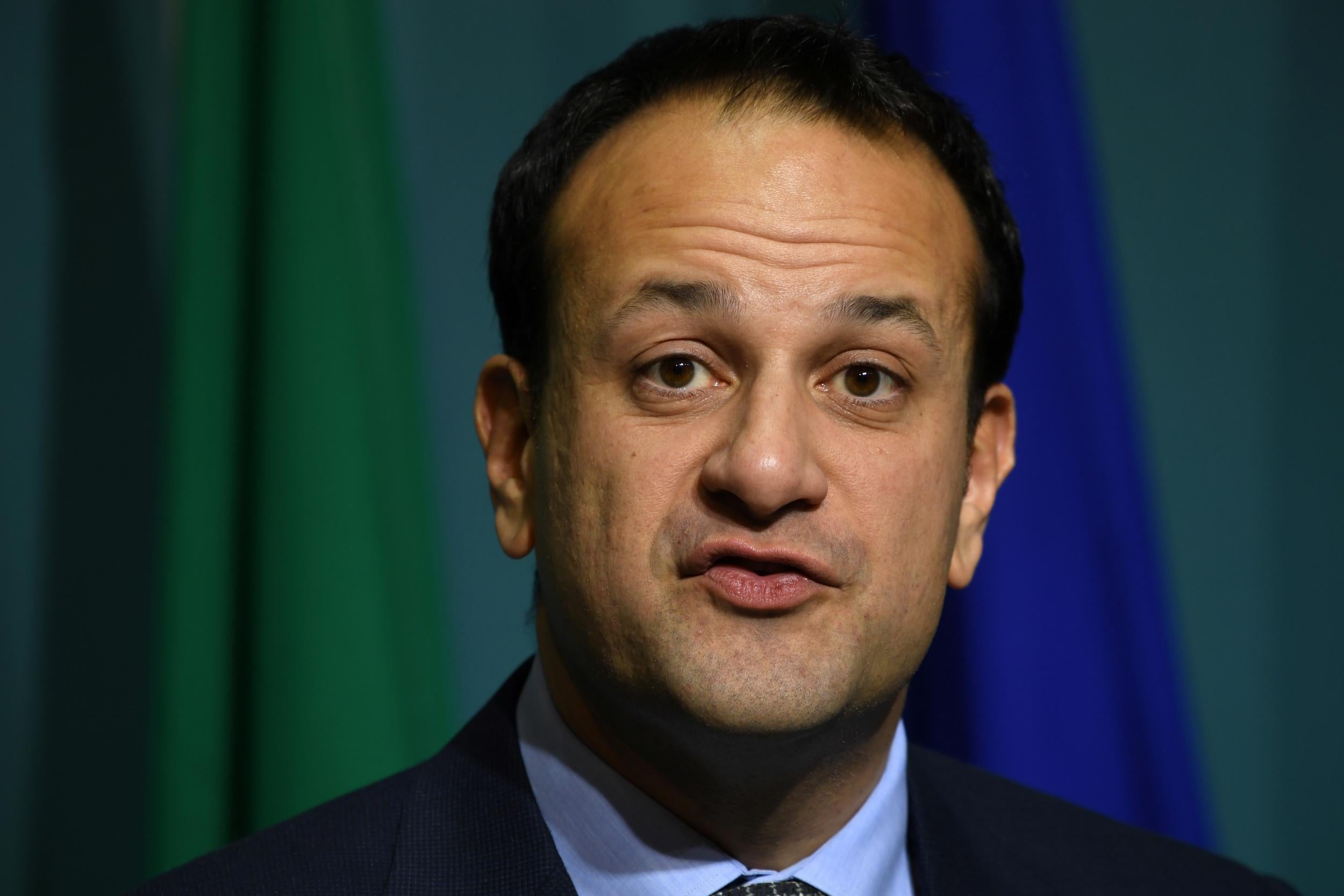Brexit: Britain should get a bespoke trade deal with EU, Ireland's prime minister Leo Varadkar says
But the Taoiseach says UK's deal should be closer to the EU than Norway is

Britain should be offered a bespoke trade deal with the EU after Brexit rather than an ‘off-the-shelf’ agreement copying that of another country, Ireland’s prime minister has suggested.
Leo Varadkar however said Ireland would like Britain to stay even closer in the EU’s orbit than non-member state Norway under such a deal. Norway currently implements EU single market rules and has free movement with the bloc.
The Taoiseach also suggested that though Theresa May had pledged to leave the European Union customs union and single market, he thought it was possible that “perhaps we can negotiate something that isn’t very different to that”.
“I think it will be a specific agreement for the United Kingdom. Of course as Ireland we want that to be as close as possible – we would have it ‘Norway-plus’ but I think we have to get into the detail now of what that means,” Mr Varadkar told Bloomberg news in an interview from the Davos summit it Switzerland.
“It’s difficult to compare it to Norway, which is a relatively small country... or a country like Canada, which is on a different continent,” he said.
The intervention is a departure from European Commission orthodoxy. Brussels negotiators, including Michel Barnier, have previously sought to frame the UK’s decision about what future relationship it wants with the EU as being a choice between Norwegian-style implementation of all EU rules, and a looser, Canadian style free-trade agreement that would not cover large areas of the economy, including services.
But Mr Varadkar added that such a deal would require the UK to realise it could not cherry-pick benefits of the single market without responsibilities. He said access to EU financial markets for British firms might hinge on what Britain gave in return – apparently an allusion to suggestions that the UK should contribute to the EU budget for such access.
The issue of British alignment with EU rules after Brexit is particularly pressing for the Irish government because different regulations would complicate the situation on the Northern Ireland border. Officials are still working on a specific solution to the problem, though in December sufficient progress was deemed to have been made on the topic to move to the next stage of talks.
Other than Ireland, German officials have reportedly raised continuing UK contributions to the EU budget as a condition of British financial firms’ access. Any payments would be on top of the £39bn divorce bill agreement by Theresa May, a figure that only covers existing British liabilities.
Over 5,400 British firms rely on passporting rights to bring in £9bn in revenue every year to Britain. The British Bankers’ Association (BBA) has said the loss of passporting would be “disruptive, costly and time-consuming”.
Brexit: the deciders
Show all 8British negotiators have been given until March to decide what they want the future relationship with the EU to look like. Theresa May has pledged to leave the customs union and single market, but the Cabinet did not even begin to specifically discuss the precise form of the future relationship until late in 2017.
The two sides are currently trying to agree a transition period, though face-to-face talks have yet to be publicly scheduled in the New Year.
Subscribe to Independent Premium to bookmark this article
Want to bookmark your favourite articles and stories to read or reference later? Start your Independent Premium subscription today.

Join our commenting forum
Join thought-provoking conversations, follow other Independent readers and see their replies